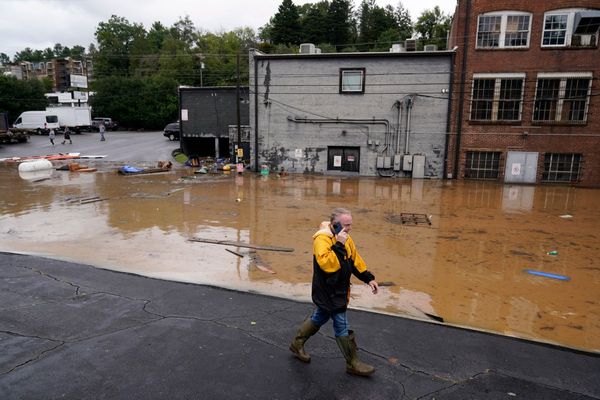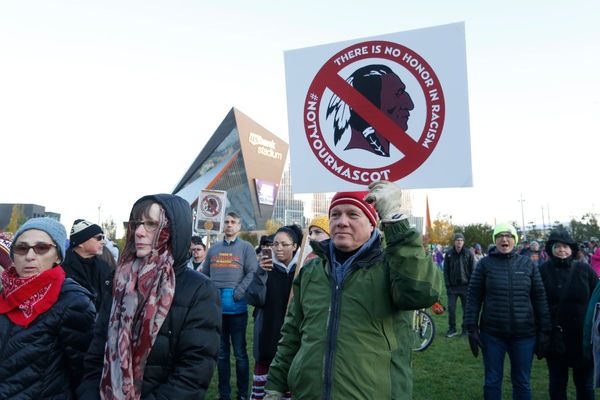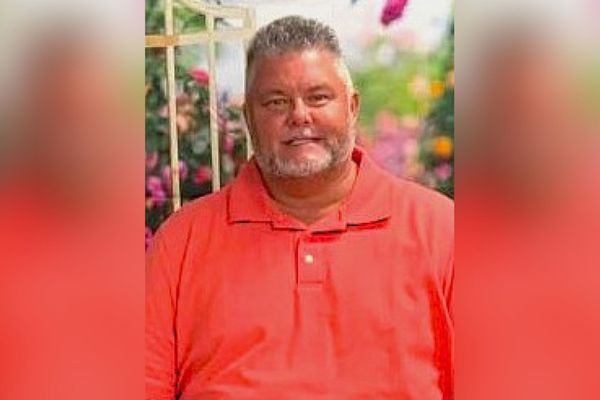
Hong Kong (AFP) - The United States warned citizens against travelling to Hong Kong on Wednesday, citing the risk of children being separated from parents as the Chinese city imposes controversial coronavirus isolation policies.
The State Department upgraded Hong Kong to its highest "Do Not Travel" warning "due to COVID-19 related restrictions, including the risk of parents and children being separated".
"In some cases, children in Hong Kong who test positive have been separated from their parents and kept in isolation until they meet local hospital discharge requirements," the State Department added.
The Asian financial hub is in the grip of its worst coronavirus outbreak, registering tens of thousands of new cases each day, overwhelming hospitals and shattering the city's zero-Covid strategy.
China has ordered local officials to stamp out the outbreak even as studies estimate as many as a quarter of the city's residents may have been infected in the current wave.
Authorities plan to test all 7.4 million residents later this month and are scrambling to build a network of isolation camps and temporary hospitals, with China's help, to house the infected.
"It remains our policy objective to subject all confirmed people to isolation at places other than their places of accommodation so as not to infect others," city leader Carrie Lam wrote in a progress report this week.
That has deepened anxieties about family separations in the months ahead and the warning by the United States is the first time the risk has been specifically cited in a travel advisory.
Spiralling infections
More than 280,000 infections have been recorded in the past two months, compared with just 12,000 for the rest of the pandemic -- while Hong Kong's death rate is currently four times that of Singapore.
Wednesday saw a record official tally of 55,353 cases and 117 deaths, the first time the daily fatality rate has hit three figures.
The real infection rate is believed to be far higher in part because residents are worried about coming forward.
For two years Hong Kong kept infections largely at bay using a strict zero-Covid strategy, but an outbreak of the highly infectious Omicron variant has torn through the city since January.
The government was caught flat-footed, with few plans in place to deal with a mass outbreak despite the two-year breathing room afforded by the initial zero-Covid success.
The city has since seen overflowing hospitals and morgues, shortages of medics and ambulances, panic buying and a frantic expansion of the city's spartan quarantine camp system.
The vast majority of those dying are over 70 and unvaccinated after Hong Kong failed to raise its elderly vaccination rate despite ample supplies.
On Wednesday, officials said some 500 bodies would need to be stored temporarily in refrigerated truck containers.
UK, Australia fears
Departures by foreign residents have spiked while businesses have voiced growing frustration over the city's descent into further international isolation as well as repeated government policy u-turns.
The outbreak has led to the imposition of the toughest restrictions yet, with more than a dozen types of businesses ordered to close and a ban on more than two people gathering in public.
Hong Kong health authorities have defended the policy of separating sick children from their uninfected parents, saying that rapidly filling hospital spaces should be reserved for patients.
Diplomats from Britain and Australia have previously voiced concern about separations.
The United States, Britain and Australia are on a list of nine nations currently forbidden from flying to Hong Kong until late April because of their own coronavirus infections.
Details are currently scant on how this month's mass testing will work and where the infected will be housed.
About 70,000 isolation units for mild cases are due to come online in the coming weeks, in requisitioned hotels, public housing units and camps.
At Hong Kong's current official caseload, that would cover less than two days' worth of new infections.
Lam on Wednesday said there will not be enough beds to isolate all infections but did not give further details.
She also said there would be no "citywide lockdown" though some measures would be in place "limiting people from going out" during testing.
The government has said it is still "refining" its testing plan and has urged residents not to panic, adding food supplies remain stable.
Several local health experts have publicly called for mass testing to be delayed given infections are set to peak at some 180,000 a day later this month.







